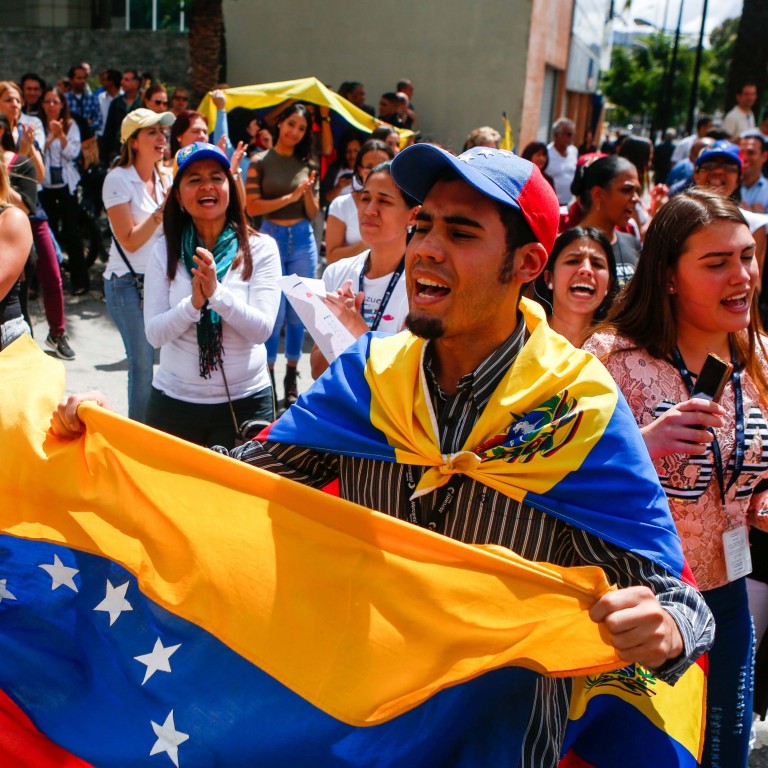
As Venezuelans protest, Mexico and Spain call for talks and US senators ask EU to join them in backing Juan Guaido
- Venezuelans took to the streets in protest on Wednesday at Guaido’s behest, calling for President Nicolas Maduro to step down
- Meanwhile, a bipartisan group of US senators has called on the European Union to back Guaido’s claim as interim president
As Venezuelans took to the streets in protest on Wednesday, the leaders of Mexico and Spain called for talks to resolve the country’s political crisis – but gaps were visible between the politicians on what exactly that would look like.
Visiting Mexico City, Spanish Prime Minister Pedro Sanchez called for talks between Venezuela’s rival leaders – President Nicolas Maduro and self-declared interim president Juan Guaido – that would lead to elections.
Mexican President Andres Manuel Lopez Obrador meanwhile reiterated his appeal for dialogue between the Venezuelan government and opposition, but insisted there could be no preconditions.
The same day, a bipartisan group of US senators called on the European Union to join America in siding with Guaido, while mass demonstrations took place in the Venezuelan capital of Caracas.
Mexico and Spain, both key players in Latin America, have taken markedly different approaches to the Venezuelan crisis.
Sanchez said Saturday his government would join the United States and other countries in recognising Guaido if elections were not called within eight days.
Lopez Obrador for his part has pointedly distanced Mexico from other Latin American powers that have recognised Guaido, saying his foreign policy is one of “non-intervention”.
“We are in favour of dialogue, for reaching an agreement without the use of force. I think on that point [Mexico and Spain] agree,” Lopez Obrador told a joint news conference.
However, he added, that dialogue must be “without conditions”.
“We can’t impose things. First the two sides have to sit down and talk. Instead of making recommendations, the best thing we can do is facilitate a dialogue … not withdraw recognition of one government or recognise another when that’s not our role.”
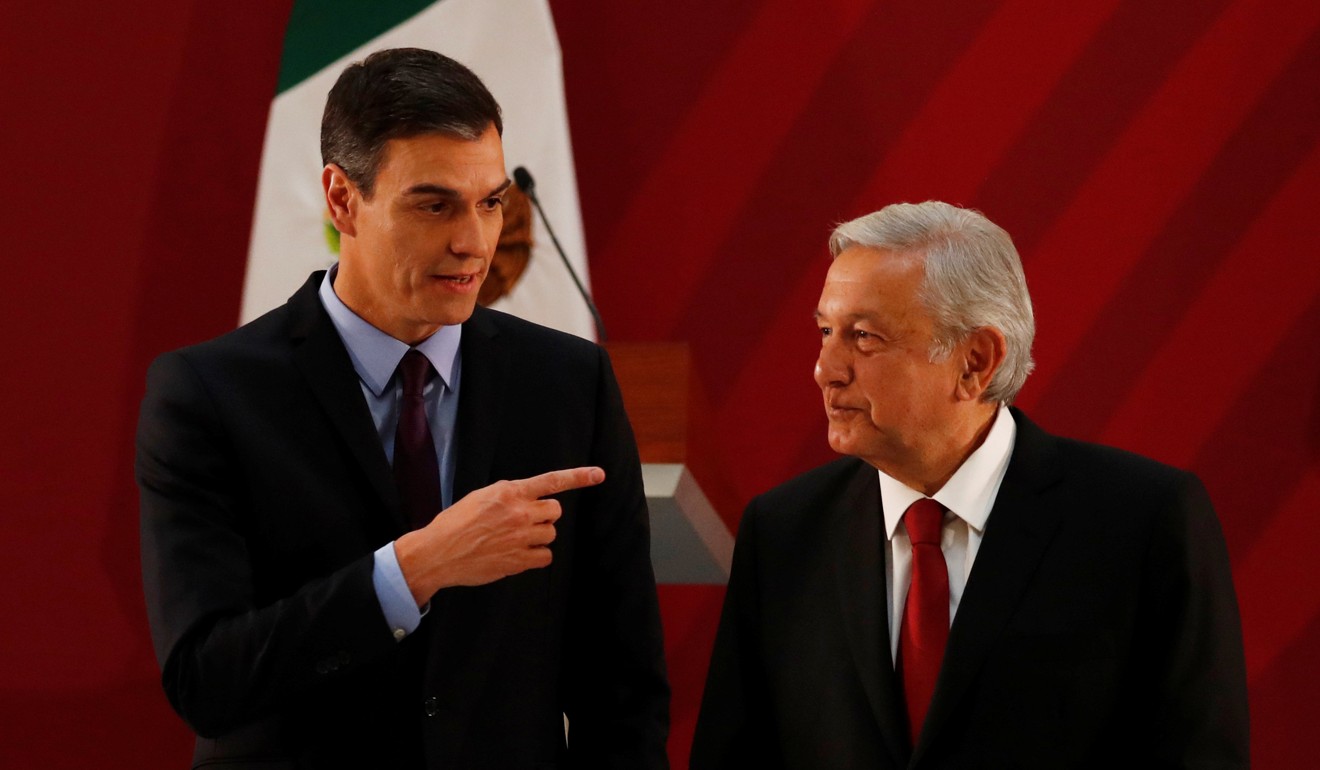
Sanchez said Spain, which is working to establish a “contact group” of countries to mediate the crisis, does not want to “impose or remove governments”.
But he insisted that free, fair and transparent elections be a precondition for any talks.
Lopez Obrador did not directly answer a question on whether Mexico was willing to be part of the contact group Spain and several other European countries are proposing.
As the pair spoke, Uruguay – whose stance on the crisis is similar to Mexico’s – announced that the two countries would convene an international conference of those with a “neutral stance” on Venezuela in Montevideo on February 7. They did not say which countries would take part.
Lopez Obrador and Sanchez, both left-wing leaders, downplayed any tensions over Venezuela, but acknowledged the gap between them on how to respond to the crisis.
“The relationship between our two countries goes far beyond any crisis,” Sanchez said, a statement echoed by Lopez Obrador.
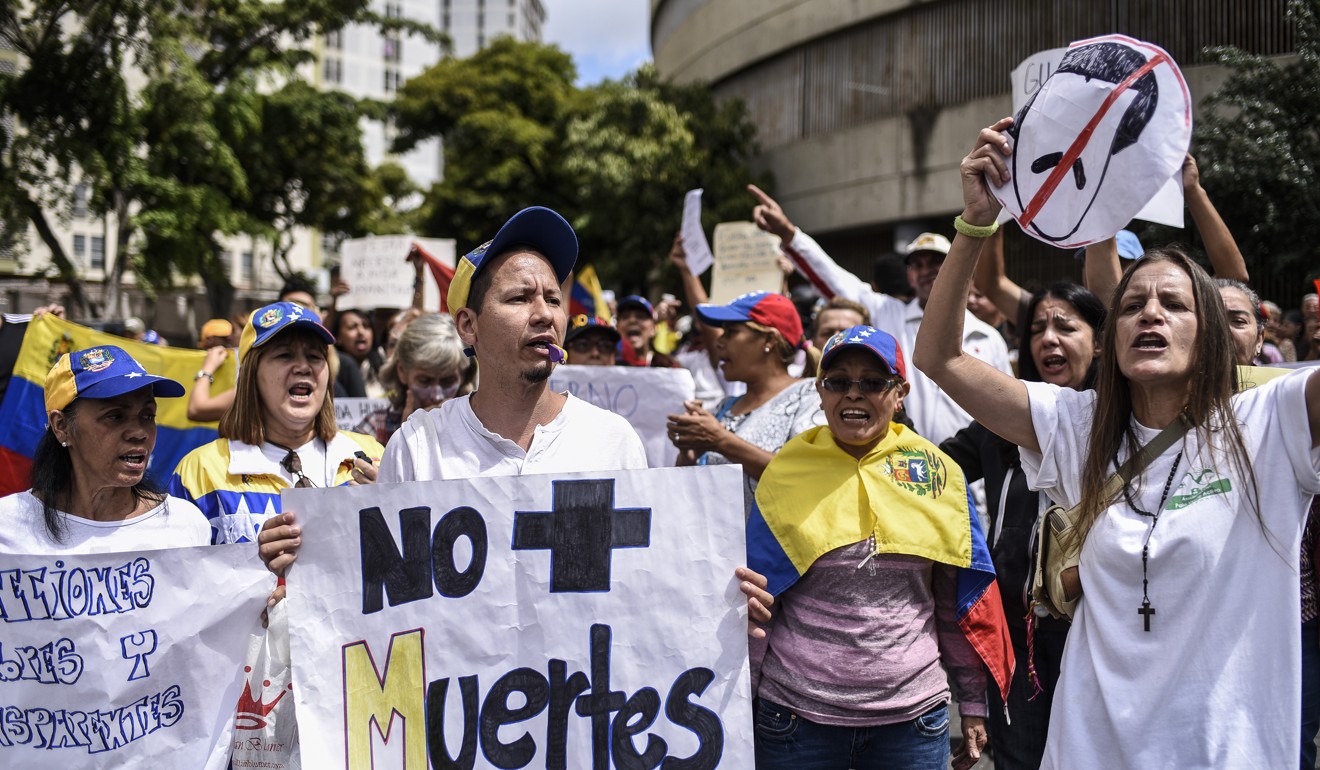
In the US on Wednesday, Republican Senator Jim Risch of Idaho, chairman of the Senate Foreign Relations committee and several other senators called on the EU to back Guaido’s claim to the Venezuelan presidency.
Risch told reporters the Venezuelan opposition’s new envoy in Washington “asked us to urge our European allies, which we have done and will continue to do”.
Senator Ben Cardin of Maryland was the only Democrat in the group of five senators who met with opposition envoy Carlos Vecchio to express bipartisan support for Guaido.
The EU’s foreign policy chief has said that if Maduro doesn’t announce a new presidential election in the next days, the 28-nation bloc “will take further actions, including on the issue of recognition of the country’s leadership”.
Those remarks came as doctors in scrubs, businessmen in suits and construction workers in jeans gathered on the streets of Venezuela’s capital in a mass walkout to demand Maduro step down from power.
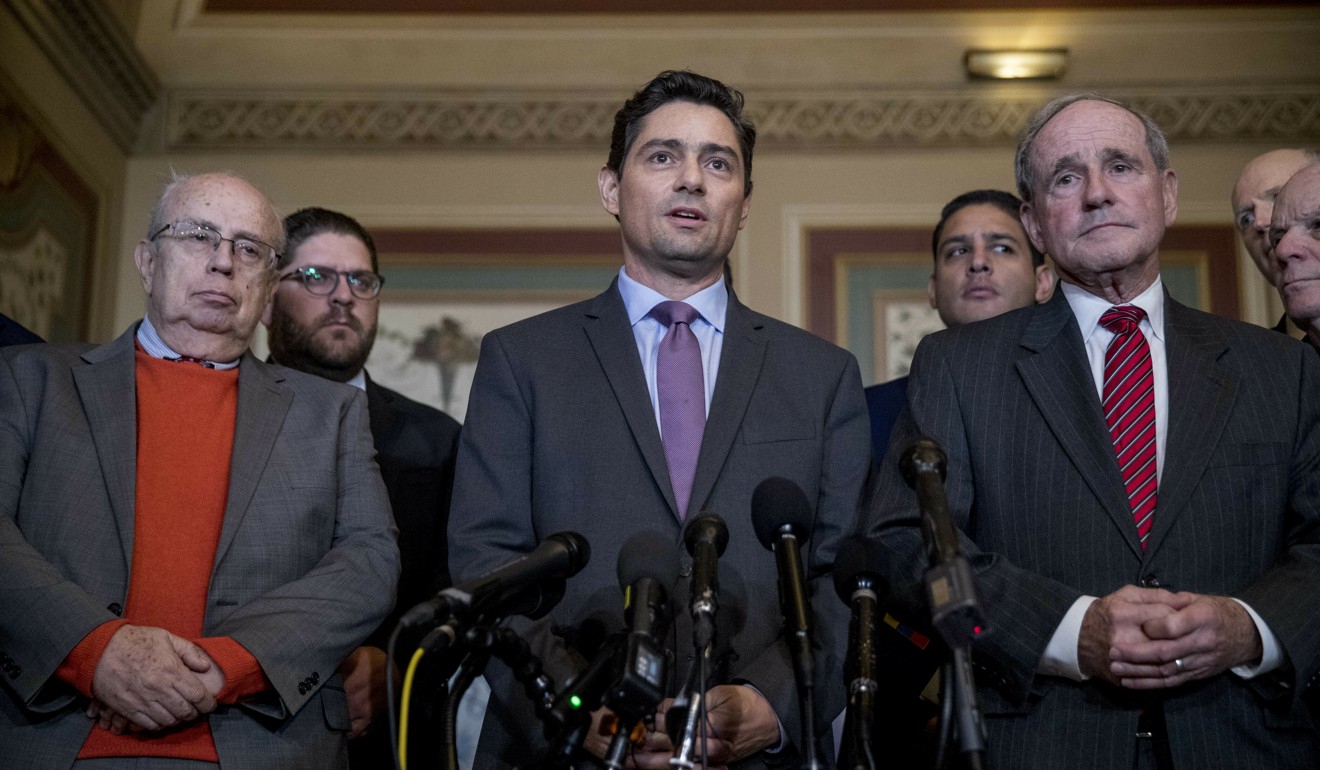
Protesters said they were heeding Guaido’s call for another mass demonstration despite the heavy-handed response by security forces over the last week to quell anti-government protests.
“I’m going out now more than ever,” said Sobeia Gonzalez, 63. “We have a lot more faith that this government has very little time left.”
“I want a free Venezuela,” several protesters in the Chacao district of the capital wrote on their signs as passing cars and trucks honked their horns in support.
Others chanted, “Maduro is a delinquent, not a president!”
A row of National Guardsmen blocked off one street in Caracas to stop protesters from going through but there weren’t any reports of violent confrontations as happened last week.
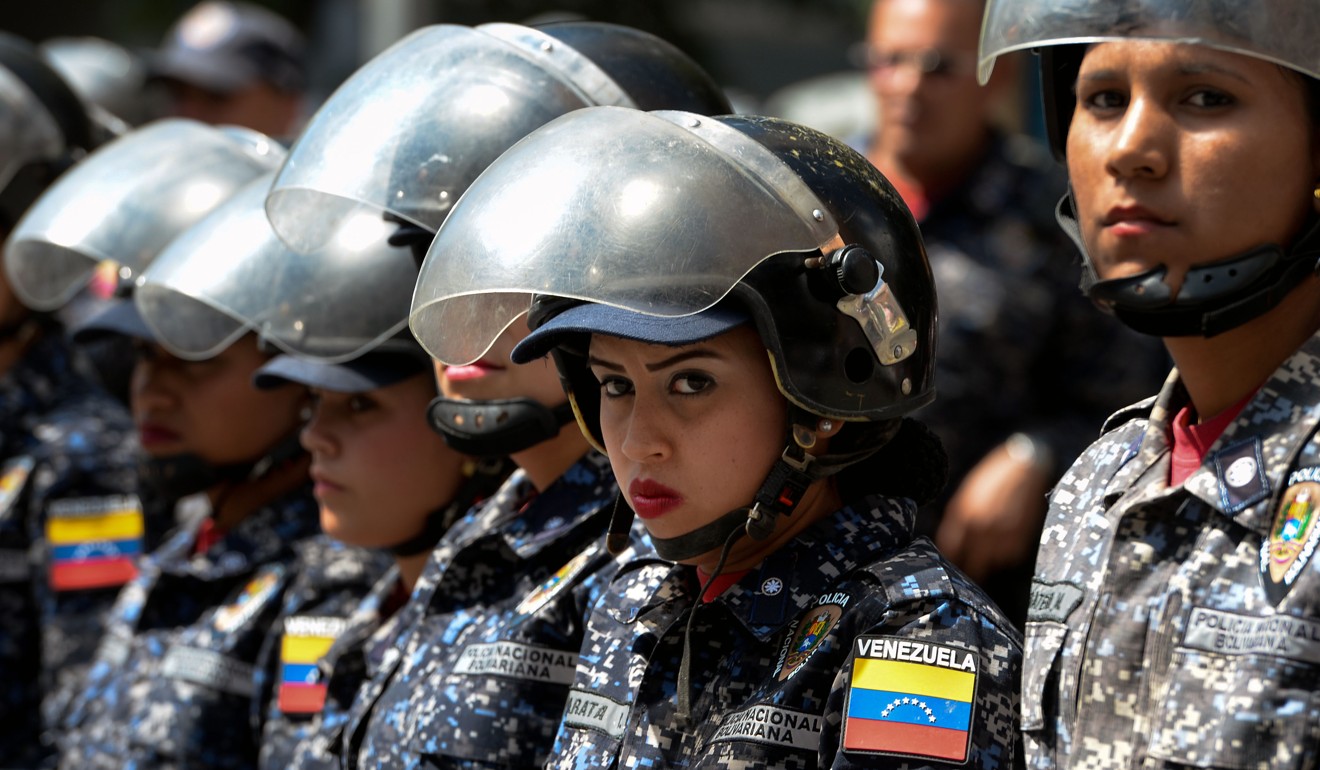
Among the protesters was Dr. Hugo Rosillo, who stood outside a children’s hospital just blocks from Maduro’s presidential palace.
He said he and others were fed up with not being able to treat their patients facing life-threatening illnesses like cancer because of shortages of medical supplies.
The hospital has turned into just “a storeroom for cadavers”, he said.
At a surprise appearance at the Central University of Venezuela on Wednesday, Guaido told students “We are staying in the streets.”
“Not just in protest of the crisis we are living in all of Venezuela, not just because of how bad things are, but also for the future,” he said.
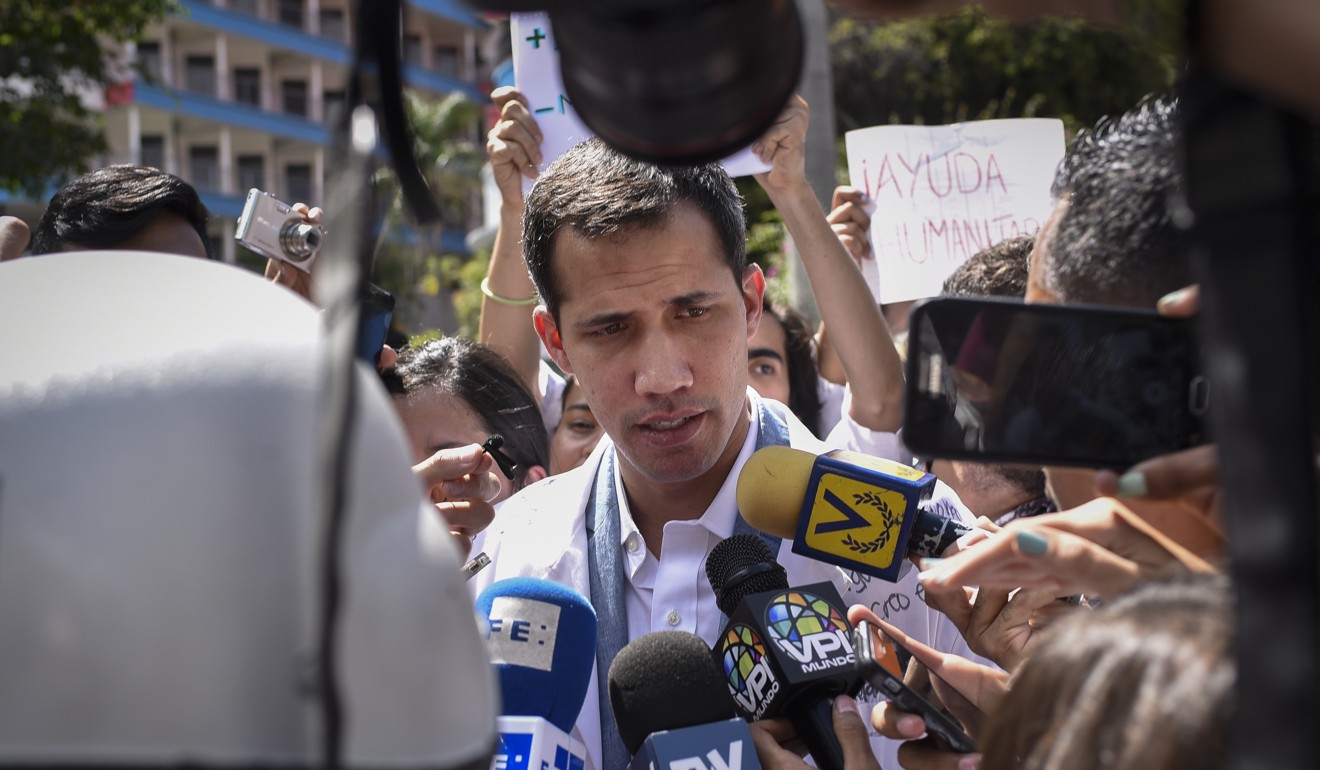
On Tuesday, Venezuela’s government-stacked Supreme Court barred Guaido from leaving the country and froze his bank accounts as a probe into his anti-government activities led by Maduro-ally and chief prosecutor Tarek William Saab advances.
US national security adviser John Bolton warned that if Guaido is harmed, Venezuela will face “serious consequences”.
Guaido has thus far managed to avoid arrest and the Supreme Court did not strip him of his legislative immunity, though the new investigation could signal that Maduro’s administration is moving to take a more punitive approach in the days ahead.
Speaking at the walkout, Guaido said he wasn’t losing any sleep over the probe. “We don’t want to leave the country,” he said. “We want people to return.”
Maduro huddled with military troops on Wednesday, prayed with evangelical supporters and released a video urging the American people to rise up against Trump and support him as Venezuela’s rightful leader.
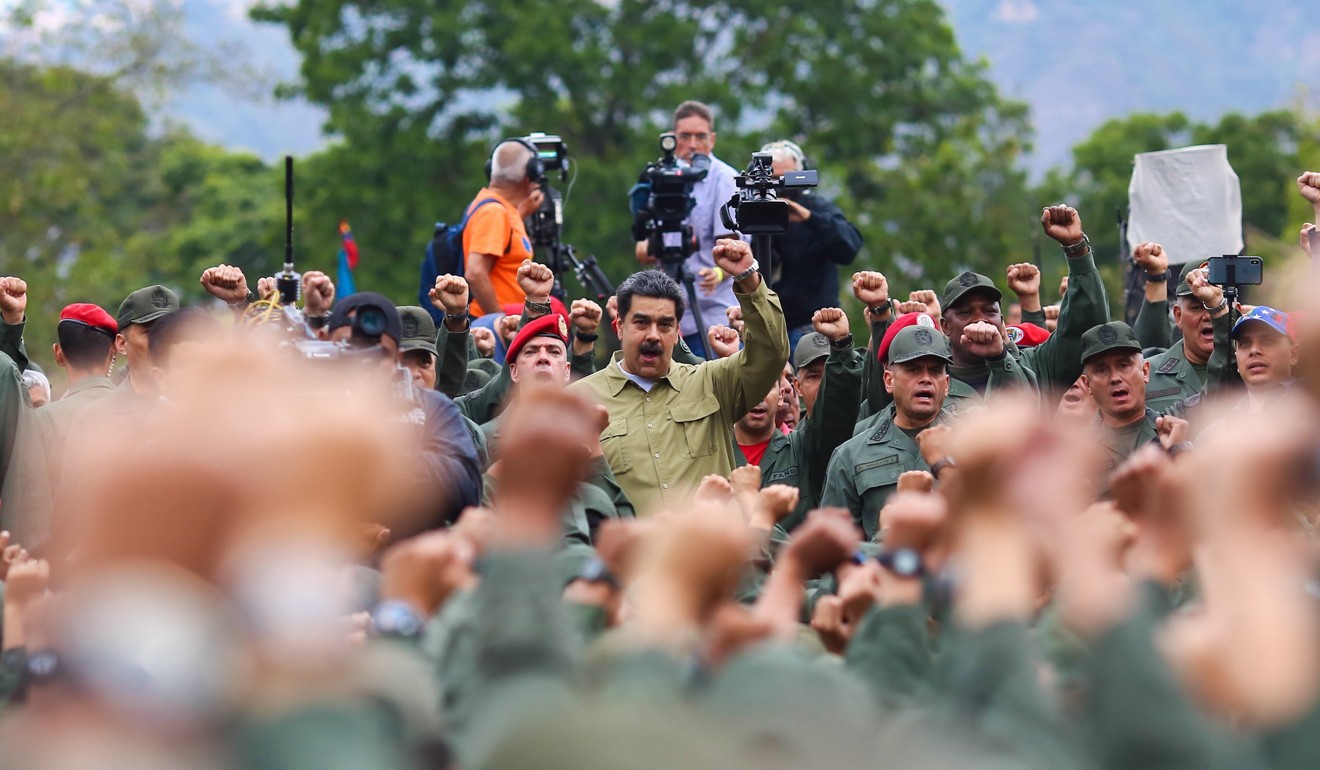
He said Trump has his eyes on Venezuela’s vast oil reserves and warned against any US military intervention.
“We won’t allow a Vietnam in Latin America,” Maduro said. “If the aim of the United States is to invade, they’ll have a Vietnam worse than can be imagined.”
Maduro has been overseeing military training exercises broadcast on state television on a near-daily basis over the past week in an apparent attempt to show he still has the backing of the armed forces, whose support is key to either man’s claim to the presidency.
In an interview with Russia’s state-owned RIA Novosti news agency, Maduro said he was “willing to sit down for talks with the opposition for the sake of Venezuela’s peace and its future”, an offer he has repeated often but that the opposition is reluctant to accept.
He also accused Trump of ordering a hit on him from Colombia, but offered no proof.

.png?itok=arIb17P0)
